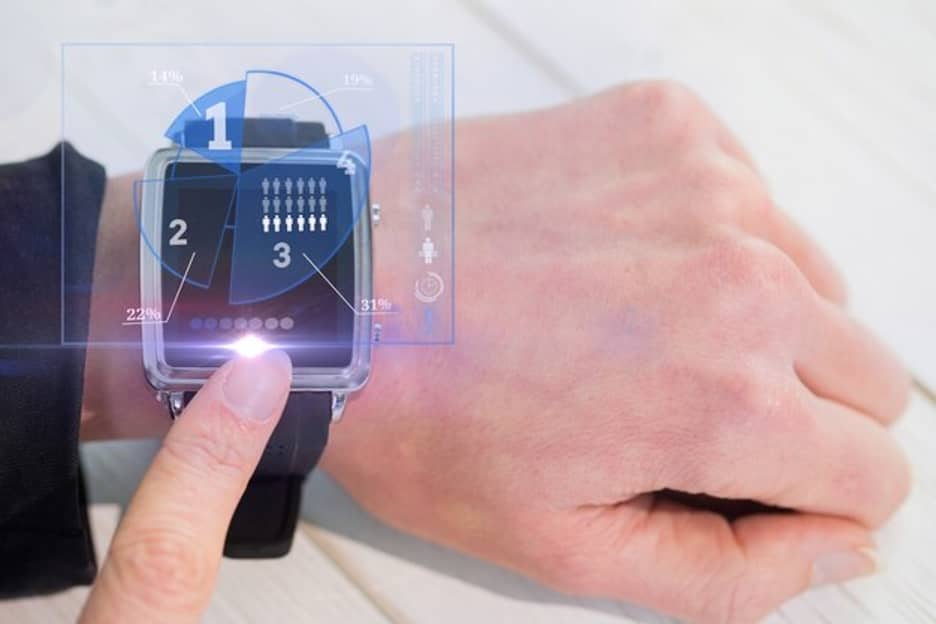
Have you ever wondered how wearable devices are revolutionizing the healthcare industry? From fitness trackers to advanced medical monitoring tools, wearable technology is no longer just about counting steps—it’s about transforming how we manage health. These devices are becoming essential in tracking vital signs, diagnosing conditions, and even preventing illnesses. But what does the future hold for this exciting intersection of health and technology?
What Is Wearable Tech in Healthcare?
Wearable technology in healthcare refers to devices that are worn on the body to monitor, collect, and analyze health-related data. These devices range from simple fitness trackers, like Fitbit or Garmin, to advanced medical-grade wearables that can detect irregular heart rhythms, monitor glucose levels, or even predict seizures.
The evolution of wearable tech is bridging the gap between patients and healthcare providers, offering real-time insights that were previously unattainable.
Key Features of Healthcare Wearables
1. Health Monitoring
Wearables track vital signs like heart rate, blood pressure, and oxygen levels. These insights can help individuals and healthcare providers monitor overall health and detect early signs of potential issues.
2. Remote Patient Monitoring
Devices enable healthcare providers to track patients’ health remotely, making it easier to manage chronic conditions and provide care without in-person visits.
3. Fitness and Wellness
Fitness trackers encourage users to maintain healthy lifestyles by monitoring physical activity, sleep patterns, and calorie consumption.
4. AI Integration
Many wearable devices now incorporate artificial intelligence (AI) to analyze data and provide personalized health insights or predictive analytics.
Current Applications of Wearable Tech in Healthcare
1. Fitness Trackers and Smartwatches
Devices like the Apple Watch, Fitbit, and Garmin are popular for tracking fitness metrics such as steps, heart rate, and sleep quality. These wearables motivate users to stay active and make healthier lifestyle choices. Additionally, you read related blogs on Trafficlike website.
2. Cardiac Monitoring Devices
Wearables like the KardiaMobile and certain smartwatches can perform ECGs (electrocardiograms) to detect heart abnormalities like atrial fibrillation. These tools are empowering individuals to monitor heart health more effectively.
3. Diabetes Management
Continuous glucose monitors (CGMs), such as those from Dexcom and FreeStyle Libre, allow diabetic patients to track blood sugar levels in real time. This data helps them manage their condition more proactively.
4. Sleep Monitoring
Wearables like the Oura Ring and Withings Sleep Analyzer track sleep patterns, helping users improve sleep quality and identify conditions like sleep apnea.
5. Rehabilitation and Recovery
Patients recovering from surgeries or injuries benefit from wearables that monitor physical activity and provide feedback on rehabilitation progress.
The Benefits of Wearable Tech in Healthcare
| Benefit | Impact on Healthcare |
| Early Detection | Identifies potential health issues before symptoms worsen |
| Personalized Insights | Provides tailored recommendations based on user data |
| Convenience | Enables remote monitoring and reduces the need for frequent visits |
| Encouraging Healthy Habits | Motivates individuals to adopt and maintain healthier lifestyles |
| Cost Savings | Reduces healthcare costs by preventing hospital readmissions and enabling proactive care |
The Future of Wearable Tech in Healthcare
1. Advanced Diagnostics
Future wearables are expected to include more sophisticated diagnostic tools. For instance, devices could monitor biomarkers in sweat or saliva to detect diseases like cancer, infections, or nutrient deficiencies.
2. Predictive Healthcare
AI-powered wearables will analyze patterns in user data to predict potential health issues before they occur. Imagine a device that can warn you about an impending heart attack or stroke based on subtle physiological changes.
3. Integration with Telemedicine
Wearable tech will play a key role in the growth of telemedicine. Data collected from wearables can be shared instantly with healthcare providers, enabling accurate remote consultations and treatment plans.
4. Personalized Treatment Plans
With wearables collecting continuous health data, doctors will be able to design treatment plans tailored specifically to each individual’s needs and lifestyle.
5. Revolutionizing Chronic Disease Management
Wearables will make managing chronic diseases like diabetes, hypertension, and arthritis more efficient by providing real-time feedback and adjusting treatments dynamically.
6. Smart Clothing and Implants
The future of wearable tech extends beyond watches and bands. Smart clothing with embedded sensors and implantable devices are on the horizon, promising seamless and more comprehensive health monitoring.
Challenges and Opportunities
Challenges:
- Data Privacy and Security: With wearable tech collecting vast amounts of personal health data, ensuring privacy and preventing breaches is a top concern.
- Cost Accessibility: Advanced wearables can be expensive, limiting access for some users.
- Accuracy and Reliability: Devices must provide accurate data to be truly effective, and not all wearables meet medical-grade standards.
Opportunities:
- Global Health Impact: Affordable wearables can revolutionize healthcare in developing countries by providing access to basic health monitoring.
- Partnerships with Healthcare Providers: Collaboration between tech companies and medical organizations can accelerate innovation and improve healthcare delivery.
- Preventive Healthcare: Wearables enable proactive health management, reducing the burden on healthcare systems.
Why Wearable Tech Is a Game-Changer
Wearable technology is reshaping how we approach health and wellness. By empowering individuals with real-time data and enabling healthcare providers to deliver personalized care, wearables are creating a more connected, efficient, and preventive healthcare system.
Final Thoughts: What’s Next for Wearable Tech?
The future of wearable tech in healthcare is incredibly bright. With advancements in AI, data integration, and diagnostics, these devices are poised to become indispensable tools for managing health. Whether it’s detecting diseases early, improving chronic disease management, or simply encouraging healthier habits, wearable tech is transforming healthcare for the better.
So, is the future of healthcare wearable? The answer is a resounding yes. With innovation accelerating at a rapid pace, wearables are set to play a central role in making healthcare smarter, more accessible, and more personalized than ever before.
Advertise with the mоѕt vіѕіtеd nеwѕ ѕіtе іn Antigua!
We offer fully customizable and flexible digital marketing packages.
Contact us at [email protected]



